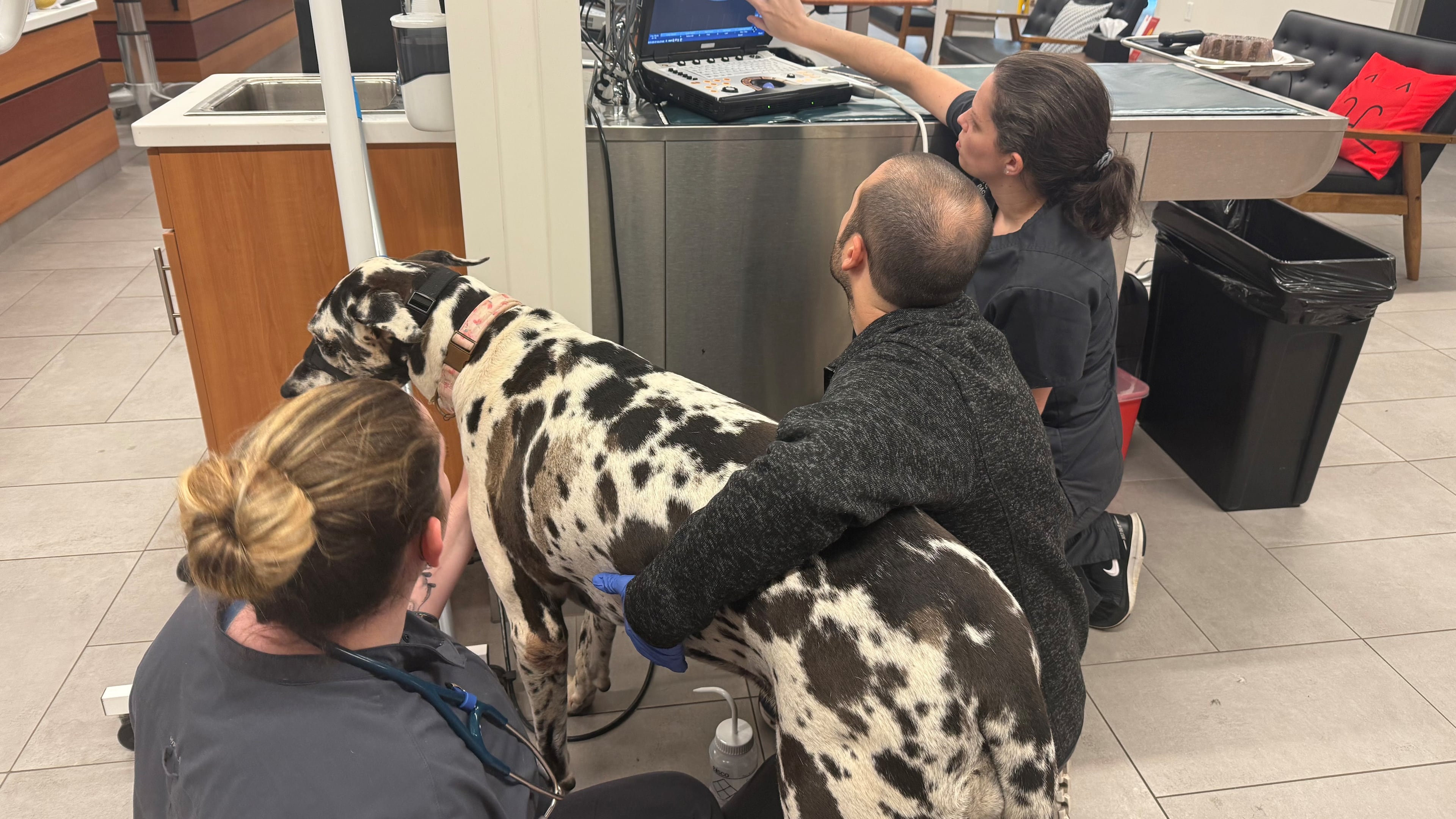Keep your pet out of the ER with these Thanksgiving safety tips

Ham, gravy and hefty second helpings — they’re mouthwateringly grand Thanksgiving staples. Yet, this is one fancy feast your fur babies need no part in.
Atlanta native Dr. Jessica Corley is an emergency veterinarian and the medical director of VEG ER for Pets’ Snellville location. According to the animal expert, the holidays pose unique risks to pet safety so significant that her ER often sees anywhere from a quarter to a third more pets on Thanksgiving. That spike in pet injuries can last well through the holiday weekend too.
“There’s a lot of good food good for us, and then our dogs and our cats get to partake in it,” she said. “Their stomachs are just not built for the level of the food that we eat.”
Holiday treats are just the beginning. From runaway incidents to severe anxiety, the medical director said holiday mishaps often lead to anywhere from a 20% to 30% increase in pet visits to her ER each year.
The truth about Thanksgiving treats
One of the best parts of holiday gatherings, particularly Thanksgiving, is the food. For pets, it’s an enticing opportunity for snacks too. Those holiday treats, however, can often spell trouble for our furry friends.
“Thanksgiving is traditionally food-related toxicities,” Corley said, explaining the most common reason pets come to her ER for the holiday.
Grapes, chocolate, lily plants, chicken bones, macadamia nuts — these should all be avoided. Pet owners should also not feed their furry friends anything high in fat, meaning no holiday ham.

According to the American Veterinary Medical Association, plain, boneless and skinless turkey is generally safe for pets in small portions. Gravy, dressing and fatty meats, however, can cause pancreatitis — even with small portions.
While small pieces of pumpkin can be fine, desserts like pumpkin pie are often toxic. Keep the sweets for your two-legged guests.
Go with their gut
You may be able to resist giving Hairy Paw-ter and JK Growling too many table scraps, but what about your guests?
If your pet likes to make the rounds when everyone’s at the dinner table, it’s possible they’ll get more holiday snacks throughout the day than you hoped for. Keep an eye out for important signs of gastrointestinal issues.
“So biggest signs that you’re going to see are GI related — so any vomiting, decrease in appetite, any diarrhea — big red flags,” Corley said. “If you see any blood in the vomit or the diarrhea, come in immediately.”
If you’re not sure if your pet needs immediate medical attention, you can always call your local veterinary emergency room.
“Just go ahead and give us a call,” she said. “We’ll let you know if this is an emergency or if you can wait at home.”
Keep an eye to your doors
Not all pet problems come down to food. One of the most worrisome holiday hazards is nothing more than an open door.
“That’s an absolute concern,” she said. “We typically see those pets a couple days after Thanksgiving.”
As guests file into your home for Thanksgiving — often making multiple trips to haul in their food offerings for the feast — your curious pet will have many opportunities to make a run for it. Make sure your guests are aware you have a pet and that your doors should remain closed when not in use.
“One big thing you can do as a pet owner is to update your microchip,” Corley suggested. “Update it with your address and your phone number so that when we scan for that, we can call you and say, ‘Hey, we have your baby. Come on over.’”
You’re not the only one holiday stressing
If you notice your pet feeling scared or stressed, those are common holiday hazards too. It’s important they have a safe space to return to if things get too rambunctious for them, especially if any guests are bringing their own pets.
“You want to make sure that your pet is also willing to be shared,” Corley advised. “So if you have family coming over, it is best to create a safe place for them to go.”
The space should be as protected from the party noise as possible. Wherever their safe space is, make sure they have water and some of their favorite toys too.
“A lot of times — all the commotion, the noise, the laughter — it’s fun for us, but can be really scary for them,” she said.



